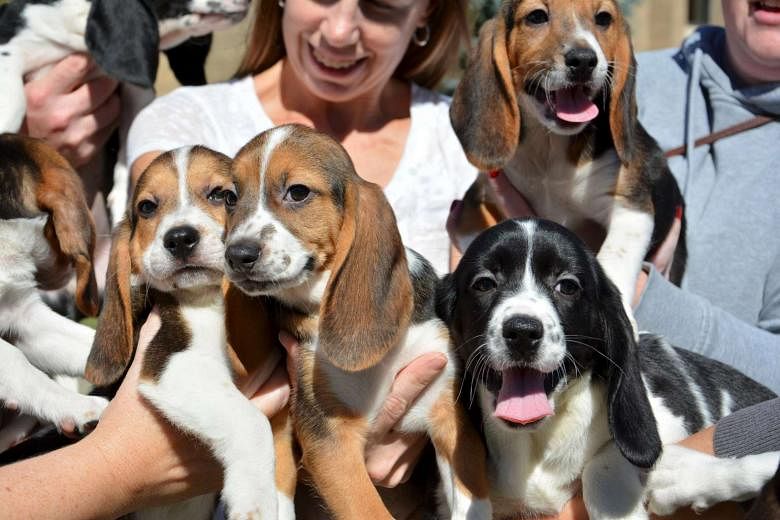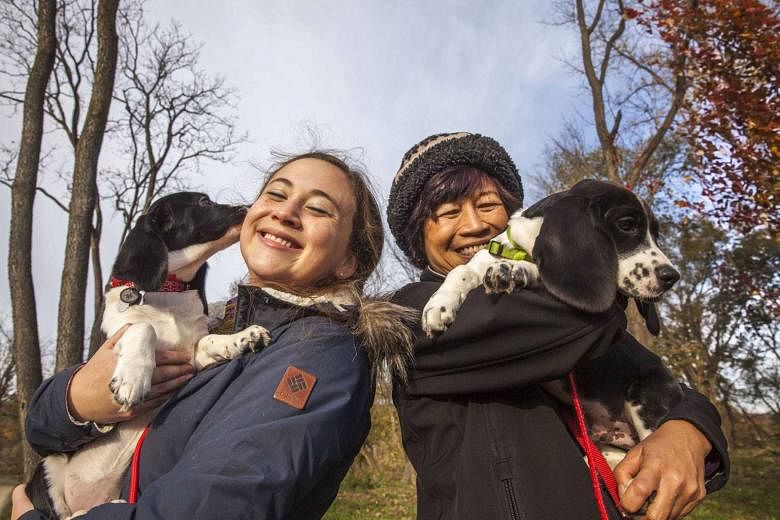WASHINGTON (AFP) - The first litter of puppies conceived through in vitro fertilisation has been born, in a scientific breakthrough decades in the making, US researchers announced.
News outlets were positively panting and wagging their tails over these playful canine pioneers.
"This is probably the most adorable scientific breakthrough of all time," a headline on Buzzfeed said.
The nitty gritty: A female dog into which 19 embryos were transferred gave birth in July to seven healthy puppies, according to the researchers from Cornell University. The announcement was made on Wednesday (Dec 9).
Two of the puppies are from a Beagle mother and a Cocker Spaniel father, and the remaining five are from two Beagle pairs.
"Since the mid-1970s, people have been trying to do this in a dog and have been unsuccessful, said Alex Travis, associate professor of reproductive biology at Cornell University's Baker Institute for Animal Health.
The findings were published in the Public Library of Science ONE journal.
The researchers said the success has major ramifications for wildlife conservation.
"We can freeze and bank sperm, and use it for artificial insemination. We can also freeze oocytes (female egg cell), but in the absence of in vitro fertilisation, we couldn't use them," Travis said.
"Now we can use this technique to conserve the genetics of endangered species."
Margret Casal of the University Pennsylvania School of Veterinary Medicine told CBS that "the reason for doing things like this is that it will lead to the preservation of species that are almost lost."
She cited "canid types - wolves, foxes - certain sub-species. There are many different types. They may not be facing extinction just yet but some are running into a crisis."
It also could help eradicate heritable diseases in dogs, according to researchers.
"With a combination of gene editing techniques and IVF, we can potentially prevent genetic disease before it starts," Travis said.
Successful in vitro fertilisation requires fertilising a mature egg with a sperm to produce an embryo, which is then inserted at just the right time into a female.
With multiple factors at play, the researchers faced several hurdles along the way, including collecting mature eggs from the female oviduct, simulating how the female tract prepares sperm for fertilisation in the lab and freezing the embryos.
It was in 1978 that the first human "test tube" baby was born in Britain, where the technique was developed.
Cornell spokeswoman Melissa Mae Osgood told The Huffington Post all the puppies have been adopted.
"In fact, the lead researcher, Alex Travis, has adopted two that his kids absolutely adore," she said.
The puppies, who were named after different colours, turn five months old this week.



